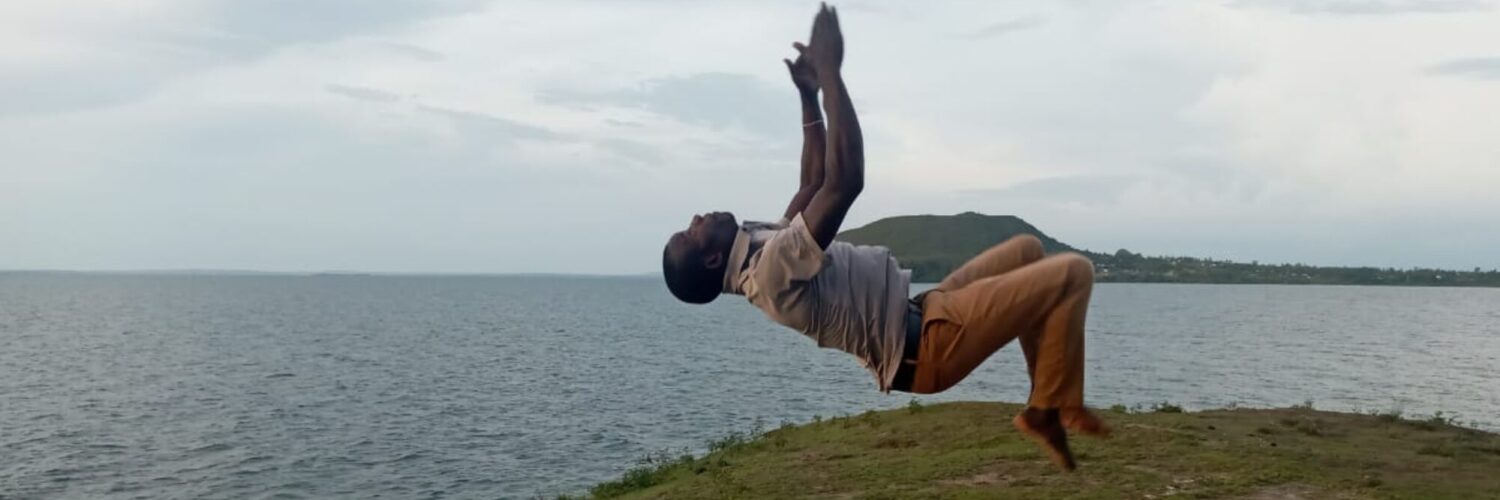FISH FARMING
As one focus point within our community procect we decided to run a fish farm, right here on the island. This is a review of how our project went during the year 2022, destined for our learning and our financial supporters.
For the past 3 years we have been very committed to this project. We raised fish in fish ponds. The idea came to us, when we realized that the high population increase here would necessarily highly increase the demand for fish as well.
Fishing is the main economic activity for the people of Rusinga.
Rusinga is an island surrounded with 17 beaches and on all beaches people fish in Lake Victoria. With many people depending on fish from the lake, the big need led to fishermen using wrong fishing gears in the lake. They used nets allowing them to catch even smaller fish – still young and growing – and also they used their nets on the breeding areas, where fish give birth. As a consequence the fish population in the lake greatly decreased. Now fishermen many times end up without the catch and the situation makes it increasingly hard to make their livelihood in the tradional way.
So when we saw the growing unmet need for fish, with many people preferring to eat the fish rather than red meat, we intiated a small scale fish farming. We started to raise tilapa fish since 2021 where we started with 4 ponds. Fish farming is a lucrative business, when done skillfully. With the capital we had at our disposal, we only start and manage four ponds. It can become more profitable and this is why: It takes fish 7 months to grow into a good market size – between 600 grams and 1kg. One kilogram can be sold at a price of 250 Kenia shillings (Ksh).
On our first harvest we did not do as well as we planned. Everything was new and we were still learning and improving managing skills as well as our knowledge on many things concerning fish farming.
Attending specific seminars and and using helpful resources available on the Internet, we continue to acquire additional skills on how to make this activity efficient and successful. We are very contented with what we intend to give to our community.
For example: we started with ponds without liners. So we needed to often change the water in the pond and that led to us needing to rent things like a water pump, pipes and suckers. Witt the little money we got from our first harvest, we bought liners to upgrade the ponds and other helpful technology.
Now our farm owns these things and we don’t need to spend extra money to rent them from other farmers.
Not owning these crucial tools had slowed our farm operation, as on many occasions we needed to use them and at the same time, the owners also needed to use them, so we had to wait until we could get our tools.
Those are some of the pictures from our farm during our harvest and operation.
Our harvest came with many challenges – some we could solve, while others we did not manage to solve. Challenges include:
1. We came to realize that we overstocked our ponds with too many fish in relation to pond size; we stocked each pond with 2000 fingerlings. When the fish grew up, the population was too large for the pond.
2. During the Corona pandemic there was high increase on the prices of fish feeds and fuel. Therefor we were unable to follow our feeding plan as intended and recommended.
3. We still were learning and did not have the skills and knowledge to handle all activities well.
4. Some of our fish died due to overpopulation and a lack of oxygen in the ponds.
5. Some birds found a way into the ponds and eat some fish
SOLUTIONS TO SOME OF THE CHALLENGES
Overstocking of the ponds.
On our new stocking we have reduced the number of fish per pond .
Now each pond hosts a population of 1500 fish.
We airate each pond every morning. The additional oxygen reduces stress for the fish and promotes their healty growth.
Owning pipes and water pumps, we are now able to change water twice a week for the fish.
We cover the ponds with bird-protection nets and thereby prevent birds from catching small fish.
We continue our research and learning, to perfection our skills in fish farming.
Pictures
With joy we wish to show some of the pictures of our ponds. We are happy, because we feel that we own some of the best ponds here on Rusinga island.
Some of the pictures show us feeding the fish.
Other pictures show us selling the fish from our first harvest.
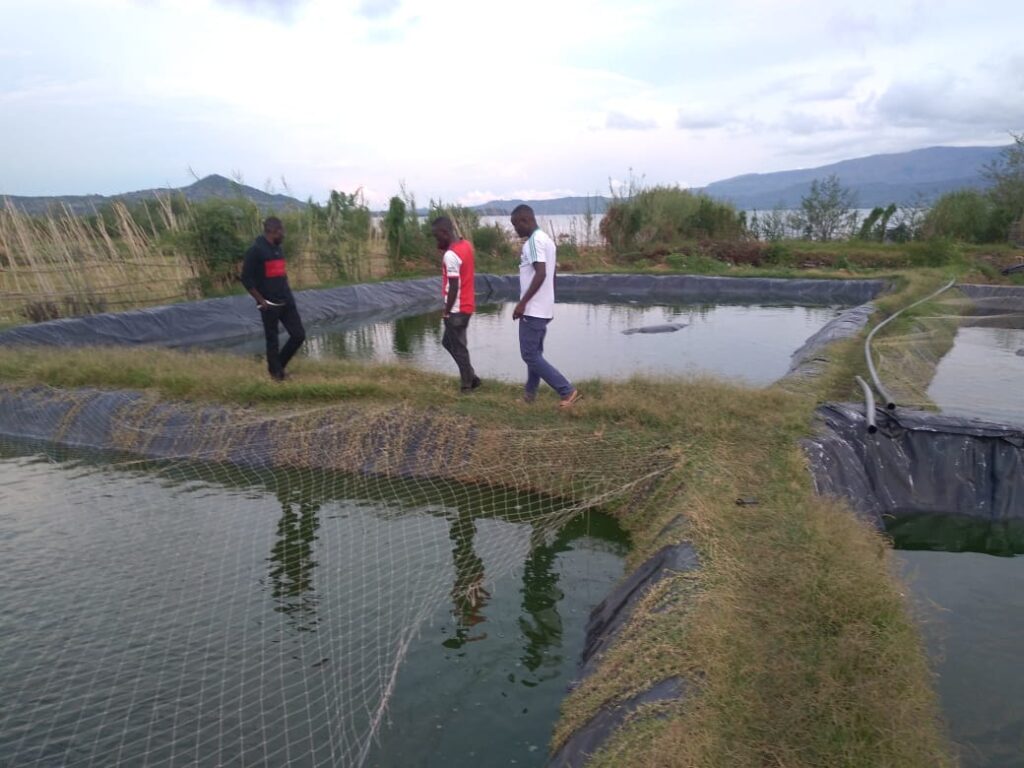
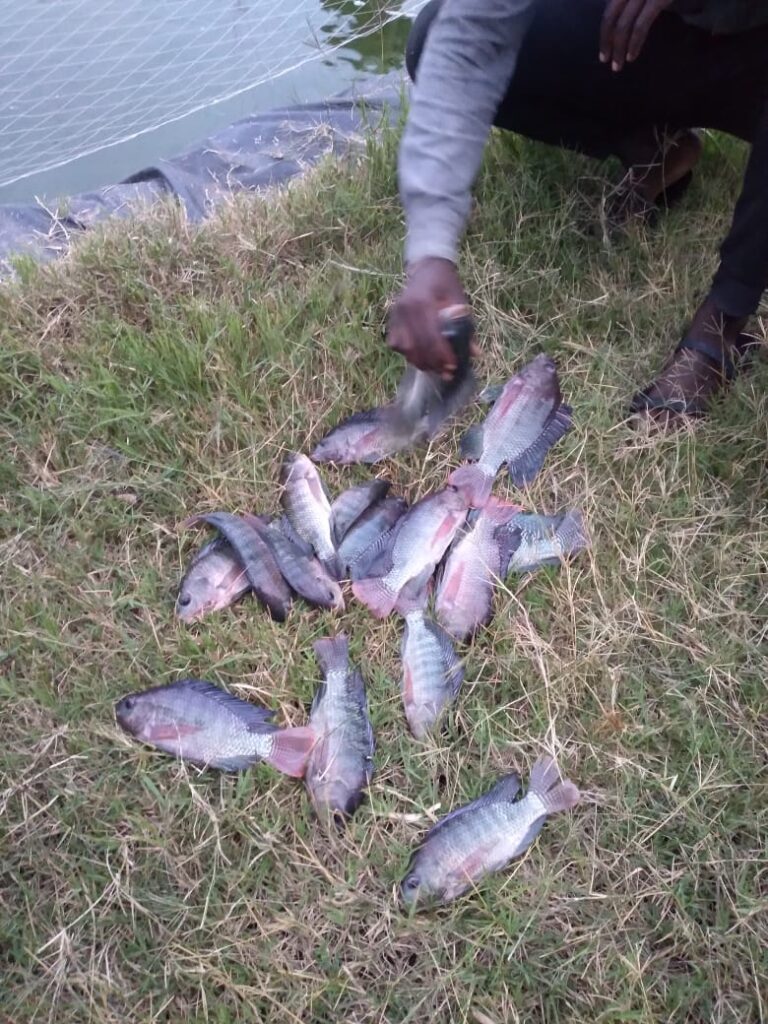
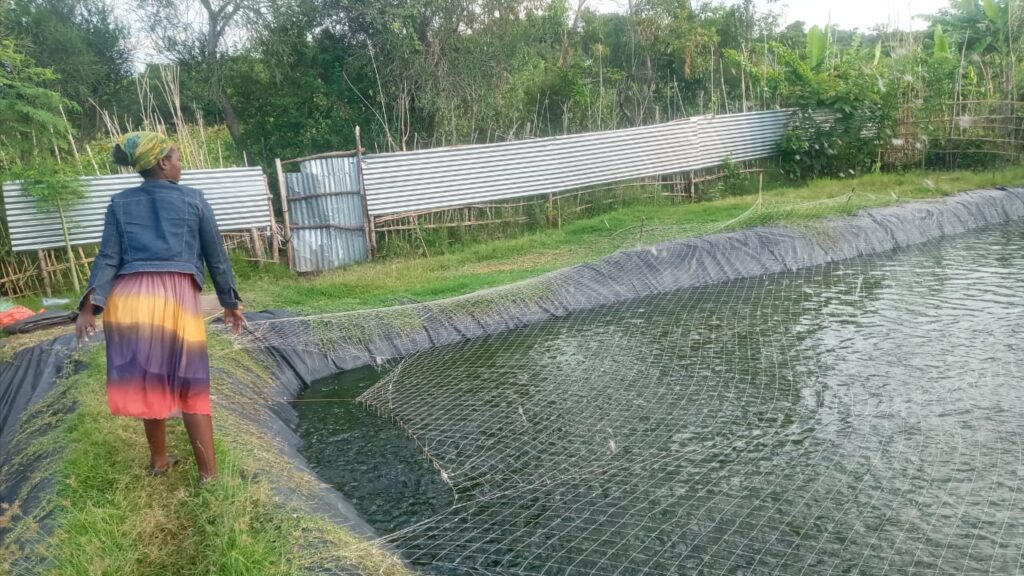
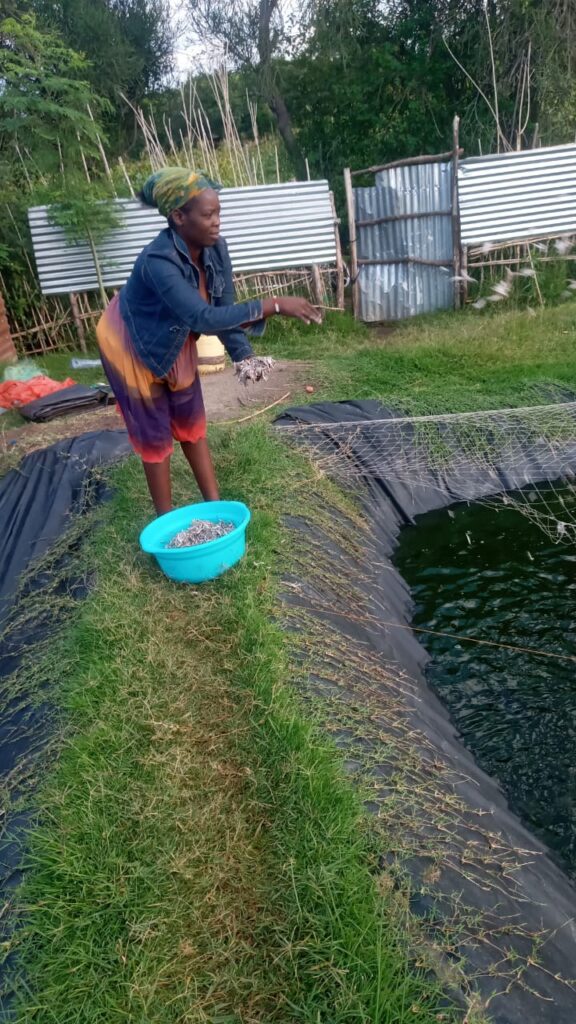
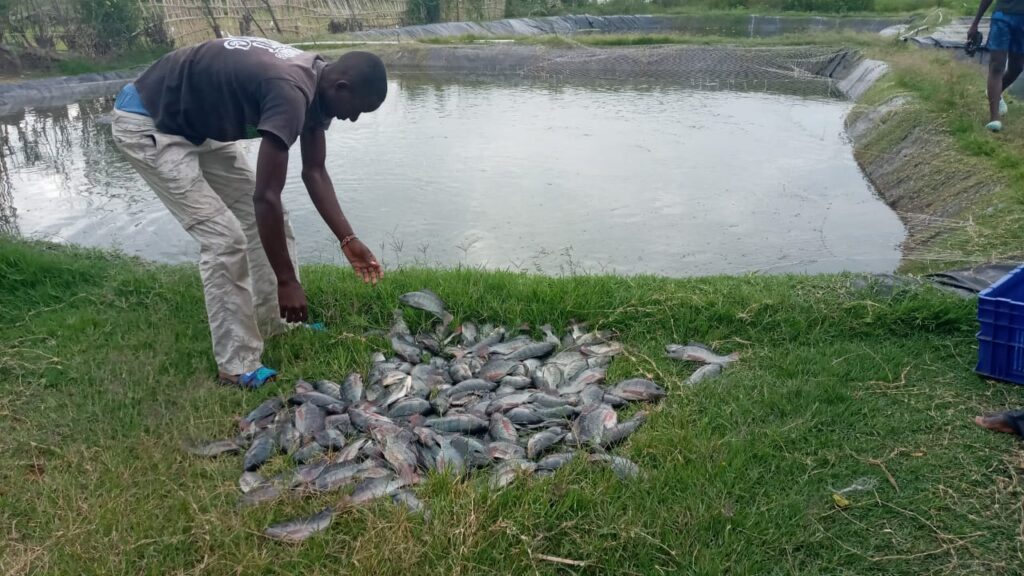
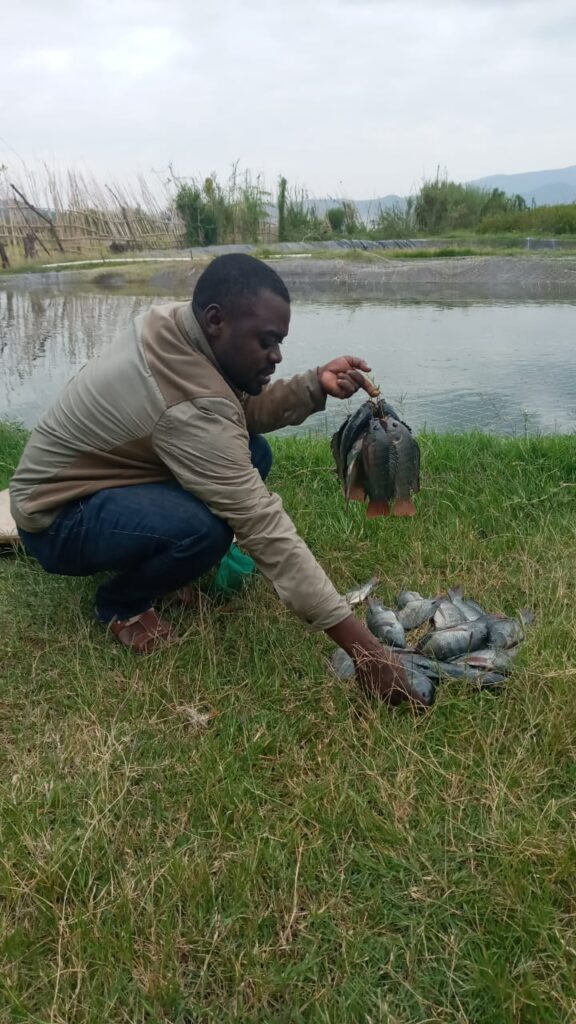
Outlook
We are confident that with all the production factors in place – such as the feeds, fuel and manpower, we will be able to produce and provide a very healthy fish product for the use of our community. Fish farming is a life-serving business. Our final end product is big fish – always in high demand. If we can manage to consistently farm high quality fish at market size then the business will certainly be able to sustain itself. The prices for feeds and fuels then present the only remaining challenge of fish farming.
With the generous contribution from our supporters we are very proud to tell all of you that we have managed to build 2 new ponds which have the capacity of holding 4000 fish since they are bigger than our previous ponds. We have also managed to use part of the money to buy the pond liners, new fingerlings and 2 bags of the starter mash for the fingerlings.
With this big support our fish farm at this moment has six operating ponds with a total of 8000 fish to be sold after a period of 7 to 8 months’ time. We now give the correct quality and quantity of feeds to our fish, we have the technology and skill to provide fresh water and morning aeration to them.
If we can have one time purchase for the feeds and fuel then our dream for solving food insecurity for the people of Rusinga will be partly solved.
Otherwise on behalf of our members we want to say big thanks to everyone who contributed towards our fish farm project, so that the people of Rusinga now have an alternative way to get fish – other than from the lake. Once again thank you all for your good heart to change lives for the people of Rusinga.
We are looking forward to continue this work and to start other projects with our community. Our request is to bring many more people from Germany to be part of this. Thanks to everyone and many blessings!
Waiting to hear from you soon.
Best regards,
Mike Wachara (project coordinator)
03.02.2023
